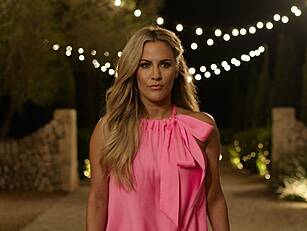Millward Brown polls for the Irish and Sunday Independent:
Ireland Midlands-North-West:
Matt Carthy (SF) 17, Thomas Byrne (FF) 16, Luke 'Ming' Flanagan (Ind) 12, Marian Harkin (Ind) 12, Jim Higgins (FG) 11, Mairead McGuinness (FG) 11, Pat the Cope Gallagher (FF) 9, Lorraine Higgins (Lab) 4, Mark Fitzsimons (Ind) 3, Ronan Mullen (Ind) 3, Mark Dearey (Green) 2, Ben Gilroy (Direct Democracy Ireland) 1
Ireland South:
Brian Crowley (FF) 36, Liadh Ni Riada (SF) 15, Sean Kelly (FG) 12, Deirdre Clune (FG) 12, Simon Harris (FG) 7, Diarmuid O'Flynn (Ind) 7, Phil Prendergast (Lab) 4, Jillian Godsil (Ind) 3, Kieran Hartley (FF) 3, Grace O'Sullivan (Green) 1, Tom Van de Ven (Direct Democracy Ireland) 1
Dublin:
Lynn Boylan (SF) 20, Nessa Childers (Ind) 19, Brian Hayes (FG) 15, Mary Fitzpatrick (FF) 13, Emer Costello (Lab) 12, Eamon Ryan (Green) 11, Brid Smyth (PBP) 5, Paul Murphy (Socialist) 4, Tom Darcy (Direct Democracy Ireland) 1
1. This could be Sinn Féin’s big moment
Aside from all the usual caveats about the early state of polling, the clear message from the three polls is that at current rates, this will be a breakthrough election for Sinn Féin. Mary Lou McDonald's victory in Dublin in 2004 is the only time the party has previously won a seat in Europe outside the North; based on this poll it should not only regain that seat, but also take one in each of the other two four-seat constituencies.
There's a lot of campaigning yet to go, but if Sinn Féin comes out at the other end of this campaign with a seat in every patch, the logical follow-up question is whether a similar goal could be pursued in a each of the 40 constituencies at the next general election. With most areas returning four TDs, and almost all of the 14 incumbents bound to run again, the European elections could prove a launchpad for even bigger things.
It's telling that Micheal Martin used most of his speech at the annual Arbour Hill commemoration not to attack the incumbent government, but instead to question the republican credentials of his opposition rivals. A boom-time Fianna Fáil leader would never have been so concerned about what Sinn Fein were up to - but the plates are clearly shifting and when plates shift, an earthquake usually follows.
2, What’s happened to the Gilmore gale?
Sinn Fein's rise clearly comes at the expense of Labour, which appears set to lose both of its incumbent seats - Emer Costello's transfer friendliness in Dublin provides the only glimmer of hope, and ironically it may only be through transfers trickling down from her former Labour colleague Nessa Childers that Costello survives.
In its defence, Labour has been dealt a somewhat unfortunate hand, with none of its three victorious candidates from 2009 running again (Proinsias de Rossa has retired, Alan Kelly been promoted to the junior ministerial ranks, and Nessa Childers has jumped/been shoved out of the party). And clearly, showing in single digits in national opinion polls always means an uphill battle when the quota is 20% (or 25% in Dublin).
But those defences will not elicit much sympathy from the public, who elected Labour primarily to keep manners on Fine Gael, only for the senior partners to convert them to lobby fodder for unpopular measures. A general election tomorrow would leave Labour with even less than its usual rump of 15-20 seats - and even if Eamon Gilmore's seat wasn't among them, his leadership would surely be on the line.
There is no reason to think that a European wipeout (especially if Costello loses in Dublin) will not result in equal challenges to his leadership. Thanks to 2011, Labour now plays host to an unusually high number of backbenchers - many of whom will be looking nervously over their shoulders if the European bloodbath is replicated domestically.

3. It’s big turf - and it’s all about the second preferences
Key in Labour's hopes will be the question of second preference votes. Emer Costello, as I've said, may still survive thanks to the transfers of others - but so, equally, could Eamon Ryan win back the old seat of Patricia McKenna, while Mary Fitzpatrick could still find some way of kickstarting her campaign in a bid to win back the old Eoin Ryan seat for Fianna Fáil.
One suspects that SF's Dublin candidate Lynn Boylan is attracting voters largely because she doesn't represent any of the 'government' parties (including FF and the Greens). Whatever are left of her transfers, and those of Nessa Childers, will probably decide the fate of everyone else.
4. The rise of the Irish independents
With roughly a quarter of the vote in every national opinion poll, there's clearly a national appetite for some new presence in the political arena - and at the current rate, there is a clear prospect that each of the three constituencies may return a non-party candidate.
Aside from Nessa Childers’ excellent showing in Dublin, the fourth seat in the Midlands-North-West (after the single seats for FG, FF and SF) will be a toss-up between the incumbent independent Marian Harkin and Luke ‘Ming’ Flanagan. Likewise, one should not discount the popularity in Ireland South of the Ballyhea-based anti-bailout campaigner, Diarmuid O’Flynn.
His 7% might only put him in a tie for fifth, alongside FG’s Simon Harris, but O’Flynn has three things in his armoury which will help him on his campaign: he’s based in Cork, he’s got years of a campaigning track record behind him, and he’s not from Fine Gael.
Fine Gael are running three candidates in the constituency, hoping to win two, but the neck-and-neck performance of Sean Kelly and Deirdre Clune on 12% might present a problem: with two candidates performing equally, the chances are that transfers from an eliminated party colleague (in this case Simon Harris) could push one over the line at the expense of the other. (Look at FF's three-candidate, four-seat strategy in Longford-Westmeath in 2011 as a classic example.) If there is only space for one FG seat, the other is O’Flynn’s to lose - and combined with Ming in the northern half, Ireland could have a healthy Eurosceptic presence in the next European Parliament.

5. They haven’t gone away, you know…
Fianna Fáil’s been administered the last rites a number of times in the last six years - and the fact they’re not dead yet should perhaps be a sign of some strange political immortality.
Their candidate in Dublin is in with a fighting chance, and the pulling power of two good candidates in the northern constituency (Pat the Cope Gallagher and Thomas Byrne) - and the phenomenal personal vote popularity Brian Crowley (36%!) in the south - means that nationally, based on the three Indo polls, more people would give their first preference to a Fianna Fáil candidate than to those of any other party.
In fact, Brian Crowley’s astonishing popularity raises the question of whether the vote can be managed to secure two Fianna Fáil seats in Ireland South. His Waterford-based running mate, Kieran Hartley, is on only 3% in the poll - but now that Crowley is virtually guaranteed his seat, expect to see Party HQ aggressively offering resources to Hartley instead. If Hartley can hoover up what's left of the FF vote, with Crowley relying on his own personal popularity, it's possible that their combined vote of almost 40% - that's two quotas - can be smartly apportioned to see both of them through.
6. Could FG make a Hayes of it?
Before the Dublin poll was published, most observers would have had no problem declaring Brian Hayes to be the only 'safe' candidate - easily inhering the seat held for years by Gay Mitchell.
With FG candidates elsewhere having monopolised the resources of party HQ so far, a drastic rethink might now be needed. Hayes' 15% put him in third place in the Dublin three-seater - but each of Mary Fitzpatrick, Eamon Ryan and Emer Costello are more attractive to transfers.
Any failure by Hayes to retain Gay Mitchell's seat (which is such a safe FG seat, it ought to be listed in the party's accounts under 'assets') would be simply disastrous.
The party elders might originally have set out hoping to win five seats (with Hayes, plus two winners in each of the four-seaters) but clearly the biggest concern facing Fine Gael now is whether Hayes' campaign can be given the attention it needs to flourish.

7. The great unknown: the Tsipras factor
One of the unique characteristics of the 2014 European election - and one which has barely caused a ripple in Ireland yet - is the fact that individual political parties are running with the specific, stated goal of electing their preferred candidate as President of the European Commission. (This is akin to the system in Ireland or the UK, where by electing a local TD or MP, you indirectly influence the identity of the next Taoiseach or Prime Minister.)
The extraordinary outlook for Sinn Féin could mean that their rivals will look to this European angle as a way of fighting back. Sinn Féin are members of the Party of the European Left, which is supporting the candidacy of the 37-year-old Greek communist Alexis Tsipras (as, incidentally, is the Socialist Party). Tsipras's political credentials are open to question - in the past he's been accused of supporting violence by anti-government demonstrators, and it won't be too surprising if others in Ireland try to draw a link between Tsipras and the more militant left wing in Ireland whose votes Sinn Féín are courting.
That said, parties will want to tread carefully there too - FG's preferred man is Jean-Claude Juncker, the former Eurogroup president who arguably didn't do Ireland many favours during the bailout; Labour's is Martin Schulz, who is well-meaning and has been vocally supportive of Ireland, but who is inescapably German and will suffer from an optics problem; and FF's European allies are supporting Guy Verhofstadt, the former Belgian premier with a sound track record but who was formerly a very close European ally of Bertie Ahern. Any mud flung at Tsipras will no doubt result in a reprisal attack.
Besides, Tsipras's star is clearly on the rise - if another election was held in Greece today, Tsipras would be the odds-on favourite to become prime minister. Nobody in Greece has been able to temper his incredible rise in popularity, and if Tsipras does well in the leaders' debate being televised live on RTE and across Europe in two weeks, Sinn Féin's star could rise even further (or at least among the hardcore anoraks who'll watch it).
8. It's early days yet
These polls, it should be remembered, come with more than their usual share of health warnings. Polling was carried out on Tuesday and Wednesday of last week, with the posters only going up on Tuesday night, so many polled simply might not have known much about the candidates running in their area.
Aside from that, the sample size in each was around 500 - only half of the sample usually taken for a national opinion poll - and besides, the poll offers fairly clear evidence that the electorate is in a state of flux.
The Ireland South poll is clearly one which has yet to settle: 82% of respondents to the Ireland South poll indicated they would support a candidate based either Cork or Kerry - counties which account for only a third of its population. In European polls people tend to vote with geography in mind, so clearly the findings must be taken with a healthy pinch of salt.
Beside, there's still four weeks of campaigning to go yet - and a lot of mud to be slung...














